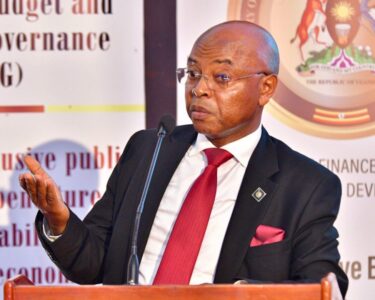By Reporter
Uganda Airlines Chief Executive Officer, Jenifer Bamuturaki, has attributed the national carrier’s Shs237.855 billion loss in the financial year 2023/24 to the rising costs of aviation fuel, aircraft depreciation, and crew allowances. Appearing before Parliament’s Committee on Commissions, Statutory Authorities and State Enterprises (COSASE) to respond to queries raised in the Auditor General’s Report, Bamuturaki stressed that these three cost drivers remain the most significant challenges affecting the airline’s financial performance.
“The highest and largest contributor to our losses is high fuel costs, followed by depreciation, and then what we call crew allowances. These have had a significant impact on our operational performance. Mark my words, I said the largest contributor. Now the other costs we have, we put them in two tranches—we have direct costs and we have indirect costs,” Bamuturaki explained to legislators.
Her remarks were in response to a pointed question from Busiro East MP, Medard Sseggona, who pressed Uganda Airlines officials to account for the persistent losses and to clarify what measures were being taken to reverse the trend. “The Auditor General raised an issue that the company has incurred significant losses. Whereas the net loss from the previous financial year has reduced by 26.5%, it remains a matter of grave concern to us that we continue making losses, and the losses we are making are in billions of money. I think this time the losses were to the tune of Shs237.8 billion. Tell us why we are making losses, what is in place to reduce them, and how can we be of assistance? Are you the problem?” Sseggona asked.
According to the Auditor General’s report, Uganda Airlines has been grappling with losses for the past three years. In FY2021/22, the airline recorded a loss of Shs265.909 billion, followed by an even bigger loss of Shs323.598 billion in FY2022/23, before slightly reducing the deficit to Shs237.855 billion in FY2023/24. While acknowledging the reduction in losses as a step in the right direction, Auditor General Edward Akol noted that the figures remain worrying and pose risks to the airline’s long-term sustainability.
In his report, Akol commended management for making efforts to contain costs and improve revenue collection, but he cautioned that “sustained losses may erode shareholder value and reduce the airline’s ability to sustain operations without external funding.” He urged Uganda Airlines to fast-track the implementation of its detailed corporate strategy, emphasizing cost control, revenue enhancement, efficient asset utilization, and stronger working capital management as critical measures for survival and growth.
During her presentation to COSASE, Bamuturaki highlighted some of the steps Uganda Airlines has already taken to cut down on expenses. “The things we are doing internally, which significantly brought down the losses, is we are working hard to manage our costs. We’re renegotiating contracts. When the contracts come to an end and we have done a bidding process, we make sure that we negotiate them to the bone, and look at any clauses that are contentious, so that the airline is able to manage its financial position,” she explained.
Beyond operational costs, the Auditor General also raised red flags regarding Uganda Airlines’ contingent liabilities, which stood at USD 3,155,715 (approximately Shs11.94 billion) as of June 30, 2024. These liabilities stem from a series of pending court cases, including disputes over contract terminations, unpaid works, negligence claims, and passenger baggage losses. The report warned that the airline could be exposed to significant legal costs in the form of court fees, garnishee orders, and settlements, which would further stretch its already limited financial resources.
In response, Uganda Airlines management clarified that the disclosed liabilities are tied to ongoing court cases. However, the Auditor General advised the airline to exercise greater caution in handling contractual matters by always seeking guidance from the Solicitor General before terminating contracts, in order to minimize exposure to costly litigation. He also emphasized the importance of promptly settling outstanding obligations to avoid additional financial and reputational damage.
Despite these challenges, there are signs of cautious optimism. The reduction in overall losses from the previous financial year suggests that the airline’s efforts in cost containment and revenue mobilization are beginning to yield results. However, the scale of the losses underscores the need for more aggressive measures, strategic partnerships, and a comprehensive review of the business model to ensure the national carrier does not remain dependent on government support indefinitely.
Uganda Airlines, relaunched in 2019 with the promise of restoring the country’s aviation pride and boosting connectivity, has faced turbulence in its financial journey. While officials point to high operational costs and global market pressures, critics argue that poor management decisions and weak corporate governance have also played a role. The ongoing parliamentary scrutiny is therefore not just about accounting for past losses, but about shaping a sustainable path for the airline’s future.






